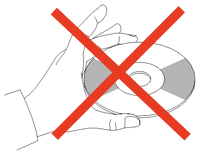
By: Robby RipChord
I Want My MTV MP3!
With the sale of The Pirate Bay to a company and their plans to turn it into a legal file distribution site (the same route Napster went) it would seem to be a monumental victory for the Recording and Motion Picture Industries. As monumental or bigger than the fall of free Napster. However, what these organizations fail to realize is that they are treating a symptom, not the problem and effectively putting a band-aid over a bullet wound.
The RIAA has an antiquated business model particularly. You won’t even see a CD in 10 years the way you don’t see a Vinyl Record nowadays. While for the last 70+ years recording labels have had a monopoly on where music could be sold and at what price, those days are gone. The distribution of music for our and subsequent generations will be the digital way, downloads. The problem with this and the problem that the Recording industry has not yet come up with a solution for is the unlimited amount of copies that a digital version of a song can birth. As they are leaked onto the internet the copies go up in numbers exponentially. There have been tries to mitigate music piracy, Digital rights management (DRM) is a systematic approach to copyright protection for digital media. This endeavor has failed miserably to curb illegal downloading although I believe is still used in iTunes.
What some of the smarter Record Labels are realizing is that the money from artists is shifting from CD sales to concert ticket sales. That’s one part of the equation. Though to really weather the storm that is file sharing, the Record labels and or Artists need to adapt their business models. Artists like Trent Reznor (a born Pennsylvanian I might add) have shown that you can give your music away for free and still make buttloads of money. Of course Trent and band Nine Inch Nails became famous before the tide turned the way of illegally downloading music and this business model probably would not work in most instances given NIN’s already large fan base but Trent began growing weary of the corporate greed earlier. A quote from Reznor in states, “…the climate grows more and more desperate for record labels, their answer to their mostly self-inflicted wounds seems to be to screw the consumer over even more.” in response to Interscope’s price gouging of NIN’s latest offering. He even encouraged people to steal their albums online.
I’m not necessarily a Nine Inch Nails fan but I don’t think there’s doubt that Reznor is a true visionary on this battlefront.
Other artists have begun to embrace a new way of distributing their music online, offering something tangible. Mos Def has offered a free t-shirt with the purchase of his album or rather a free album with the purchase of a t-shirt. Some artists have experimented with sending autographed album or other band related artwork in poster form to fans who buy limited edition albums. The concept of offering a physical product with a digital download of an album is a novel one and somewhat makes up for the lack of a material album in fans hands.
Whatever the idea, it has been proven that real fans will shell out money for their favorite artists for their newest release no matter if they can get it free or not. That does not help the struggling garage band make it to the big time without an already large following but if their ideas are smart enough, viral enough and the band is actually good enough that people will want to see them then they will survive. Just as Music Video’s catapulted artists in the 80’s and 90’s into mainstream consciousness so can it’s cousin YouTube.
The Music Industry needs to embrace these ways of selling albums rather than relying on and defending a dying business model. There will be piracy no matter what now that we have entered the digital age, the Record Labels that adapt will be around as long as they have a product that is relevant to fans. And true, die hard fans are always going to be there and support their favorite acts. It is now a matter of making these acts matter to the public and I’ll leave that up to the music industry and the artists themselves to figure out.


